Forensic nursing is a very specialized field open to professional nurses. They work in various settings, including hospitals or trauma centers.
Since violence is everywhere these days, the need for forensic nurses has increased.
If you find yourself getting interviewed for the position, here are ten questions and answers that will make the interviewer think you are the best person for the job.
Forensic Nursing Interview Questions and Answers
1. How comfortable are you working with patients who are the victims of a crime?
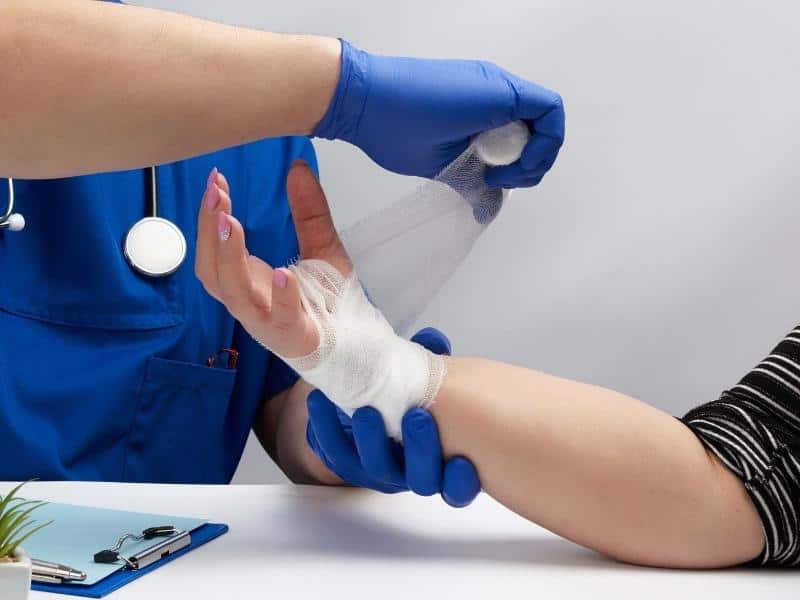
An interviewer here is trying to judge whether you can provide adequate care to patients who have undergone deep traumatic events.
To answer this question, explain how you would handle working with these patients, and you can give an example of a time when you looked after a victim of a crime.
Example:
“As a nurse, I help treat patients’ injuries. When patients are victims of a crime, they need to be examined sensitively, taking account of both their physical injuries and making them feel emotionally safe.”
2. What are the critical skills each forensic nurse should have?
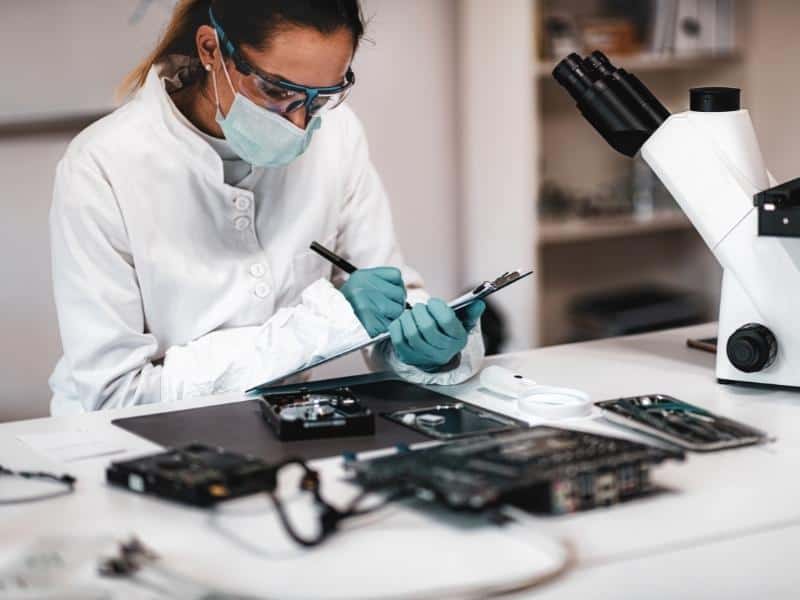
By phrasing the question this way, the interviewer can determine whether you understand the critical demands of what will be expected of a forensic nurse.
When composing your answer, you can mention your strong skills related to the position.
Answer:
“Forensic nurses should be intuitive and have great clinical and people skills. They also need to be well-organized to ensure they identify and preserve any evidence they collect from the victim. The evidence must be preserved in an uncontaminated state to stand the scrutiny of being presented in a court of law during the prosecution of the case. A forensic nurse must also be emotionally resilient to be able to work objectively in traumatic and emotional situations.”
3. What would you do when a patient refuses to provide forensic testing samples?
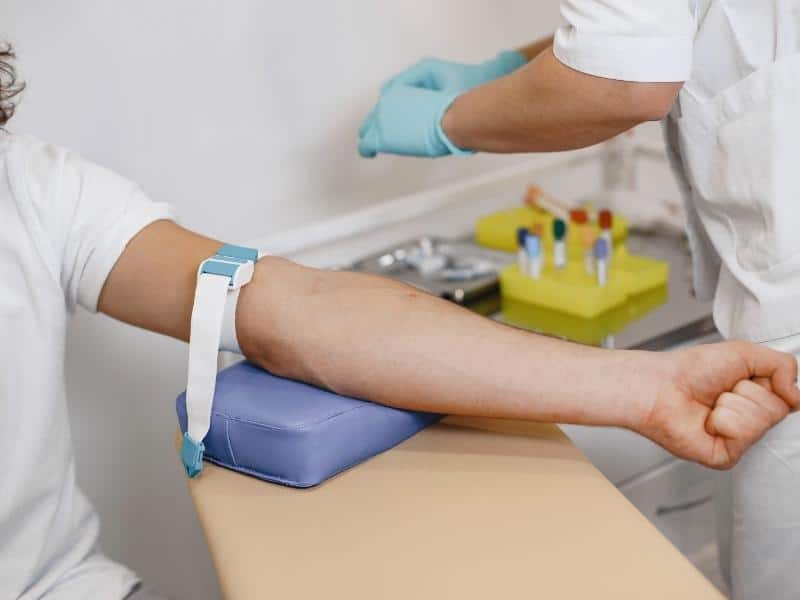
Being faced with a patient’s refusal to cooperate in the process of documenting a crime is a challenging situation.
The interviewer will assess your answer to understand how you can handle and perform when faced with a difficult situation.
Answer:
“A patient is more likely to refuse to provide a sample for testing when they are scared and feel that by providing the sample, they will be violated further.
Most of the time, their refusal makes the case against the perpetrator weaker.
I would try to talk to the patient and gently explain the reasons for requesting a sample and the consequences of their refusal.
If the patient still refuses consent to provide a sample for testing, I would note that in their medical record and notify my manager and the prosecutor assigned to this case.”
4. How do you ensure that all the evidence collected is preserved?
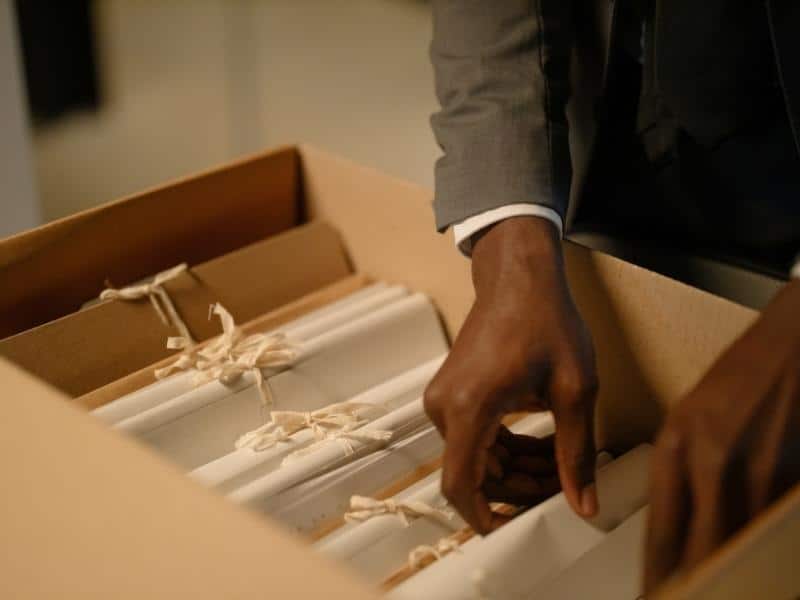
The interviewer needs to assess how skilled you are at organizing and preserving the evidence collected and how attentive you are to details. They are also testing your knowledge of the protocols you should follow when collecting physical evidence of a crime. A successful answer will contain your process of how you go about collecting evidence.
Example Answer:
“I assess the patient head to toe, collecting and documenting each piece of evidence during my initial assessment.
I also take detailed photographs of any injuries or wounds to ensure nothing is missed in my report.
I use special collection tools and specimen jars to collect any hair, skin cells, or bodily fluid samples.
For collecting trace evidence, I take swabs and spray on fixatives to preserve any cells contained in the sample.
I store the swabs, jars, and photographs in appropriate containers to ensure all the evidence is correctly labeled and kept in one place, so it does not get damaged.”
5. How would you handle a patient who is hostile and aggressive?

This question assesses your interpersonal skills, and the interviewer wants to know if you can handle a difficult situation with an aggressive patient and diffuse it.
In your answer, explain how you would diffuse such a situation.
Answer:
“Pain and stress can make some people act aggressively. Before the exam, I would talk to the patient to try to get them to calm down and be more cooperative during the exam.
I would listen to their concerns and address them as best as possible. Hopefully, that will be enough to make them feel comfortable and safe enough to take the exam.
If the patient continues to refuse the exam in a threatening way, I would back down and make appropriate notes in the file.”
6. How do you handle stress?

Forensic nursing is stressful, so being stressed is part of the job.
The interviewer is trying to gauge whether you can control your stress levels without becoming overwhelmed.
Answer:
“I find the best way to relieve stress is by taking short breaks throughout the day. For instance, I can do a few stretches at my desk or drink a glass of water.
These activities help me refresh and prepare for the following tasks. When I have time off, I try to relax by cooking and taking long walks with my dogs to help me destress.”
7. Describe your experience with evidence collection and analysis
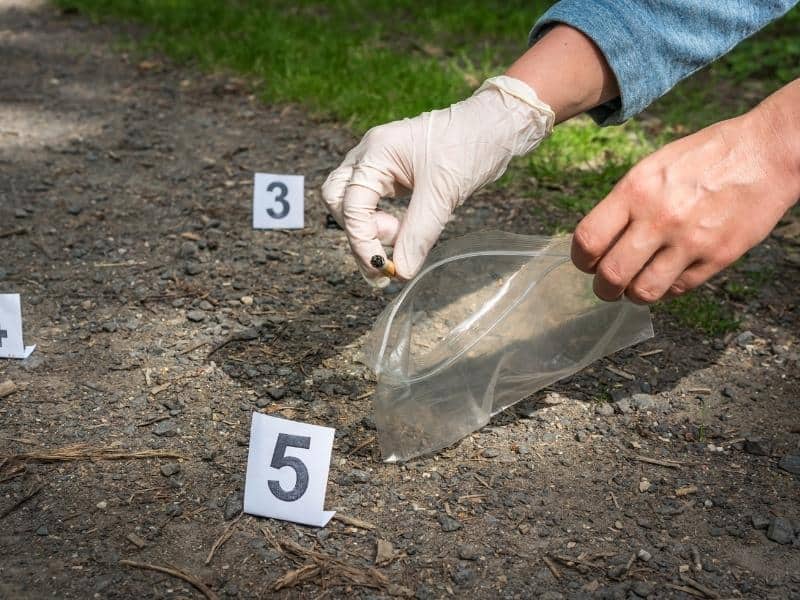
Collecting evidence is the most important task of a forensic nurse. The interviewer needs to confirm you have the necessary skills to perform this role.
When answering this question, you can relate your experience with collecting and preserving evidence.
Example Interview Answer:
“During forensic nursing training, I had the opportunity to accompany my supervisor on a call where a body was found in a backyard.
I took photographs of the body and then collected swabs as physical evidence. After collection, I packaged and sent the samples to the lab for testing.”
8. What would you do if you saw your colleague tamper with evidence?
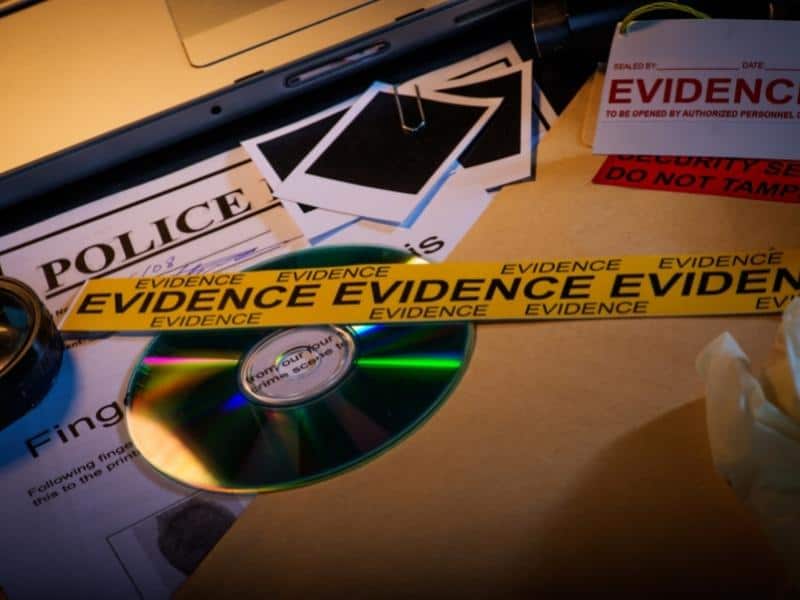
This is a trick question. It tests your work ethic and ability to work as a part of a team. The interviewer wants to hear in this answer that you value teamwork and have a healthy respect for authority.
Answer:
“I would approach the colleague and express my concerns about what they are doing.
If they became threatening or did not take me seriously, I would report the incident to my supervisor, taking great care to state only the facts and avoid speculating about my colleague’s intentions.”
9. Do you like to work independently or as part of a team?

Being able to work as a part of a team is an important quality in forensic nurses.
That is why the interviewer is assessing your interpersonal skills, and your answer should reflect that you are a team player who values the input of the multidisciplinary team into patient care.
Answer:
“I find that when examining a patient, they feel more at ease if it is just me doing the exam and not the whole team. In that situation, I prefer to work alone.
However, I know I am part of a bigger multidisciplinary team that will look after the patient in our care. So, I like to work with other team members to work out the best care for my patient.”
10. Do you have any questions about the position?
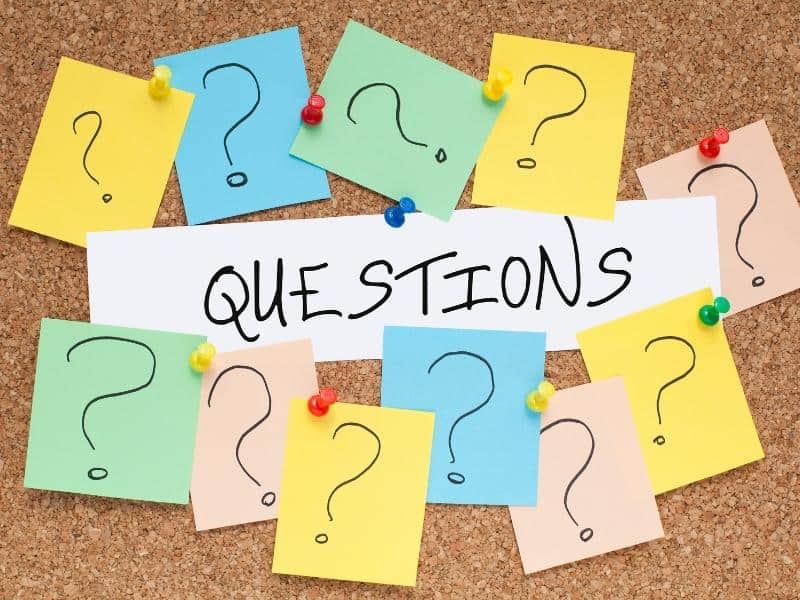
Asking the interviewer questions at the end of the interview shows that you are engaged in the process and genuinely want to learn more about the position.
It is a chance for you to ask questions about the facility or your work environment or even to find out more about opportunities for further training.
Answer:
“I am excited about this position because I have always wanted to work at your facility. I want to ask what types of patients I can expect to treat most often.
From my understanding, your facility caters mostly to adult victims of sexual crime, but do you also treat child victims?”
Final thoughts
Forensic nursing is a highly specialized field where further training is required before you are hired into this position.
However, if you have already done the training, prepare for the interview by researching the facility and practicing your answers to the possible questions.
Your effort will make you stand out from the other candidates.

